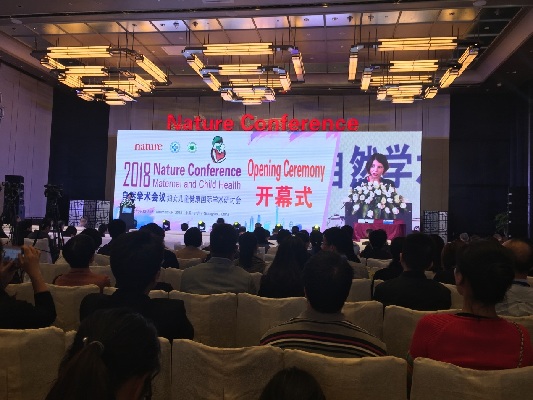Guangzhou hospital builds biological samples bank for cohort research

Guangzhou Women and Children's Medical Center, the largest medical facility for women and children in South China, has built the country's largest bank of parent-and-child biological samples from normal population for cohort research.
The bank currently has samples of 28,000 infants and 33,000 mothers, said Qiu Xiu, deputy director of cohort research office of the center, adding their aim is to have samples of 50,000 infants and 50,000 mothers. The center's cohort research has supported a number of major researches.
Sizable samples, questionnaire data and long-term follow-up help many researches including those on child obesity, allergy-related diseases and autism, said K. K. Cheng, director of the Institute of Applied Health Research of the University of Birmingham.

Scientific journal Nature and the Guangzhou Women and Children's Medical Center jointly hold a conference on maternal and child health in Guangzhou from March 22 to 24. [Photo provided to chinadaily.com.cn]
Follow-up questions is designed in a detailed way including the diet, size of living space, the distance between home and road, dialects used at home, humidity at home and parenting style, Qiu said, during a conference on maternal and child health held by scientific journal Nature and the center.
The ceter also runs a paediatrics research institute, with 10 labs led by principal investigators, including those from overseas.
The institute is carrying out clinical researches on treating cerebral palsy with stem cell technology and brittle bone disease with genetic technology, and other difficult and rare diseases, said Tang Yaping, executive director of the institute.
MOST POPULAR
- 1 China to give visa-free treatment to another 9 countries
- 2 China fully opens manufacturing sector to foreign investors in landmark opening up move
- 3 China's import expo attracts record-breaking participating countries, exhibitors
- 4 China's door opening even wider to foreign visitors, businesses
- 5 China revises rules to ease foreign strategic investment in listed firms
Editors' Picks
 Video:
Peru sees new port open
Video:
Peru sees new port open
 Infographic:
China's public holidays for 2025
Infographic:
China's public holidays for 2025
 Infographic:
Basic facts of APEC
Infographic:
Basic facts of APEC
 Infographic:
Wrapping up the 7th CIIE: Data recap
Infographic:
Wrapping up the 7th CIIE: Data recap



